Salvation Army commander Brendan Nottle says tradies are now asking for help
Salvation Army commander Brendan Nottle lost his mother and his faith as a teenager. The Salvos helped heal him.
Victoria
Don't miss out on the headlines from Victoria. Followed categories will be added to My News.
A man squats on Bourke St, his white sneakers spattered with red.
Paper towel is pressed against a deep knife wound on his arm and blood is trickling towards the gutter.
Salvation Army Melbourne Project 614 commanding officer Major Brendan Nottle has his phone pressed to an ear as he calmly calls emergency services and colleagues.
Minutes earlier the clank of a glass bottle on concrete and a teenager’s angry cry were enough for him to leap out of a chair at a nearby cafe, where he was being interviewed by the Herald Sun.
“Excuse me,” he said politely, before marching across the road.
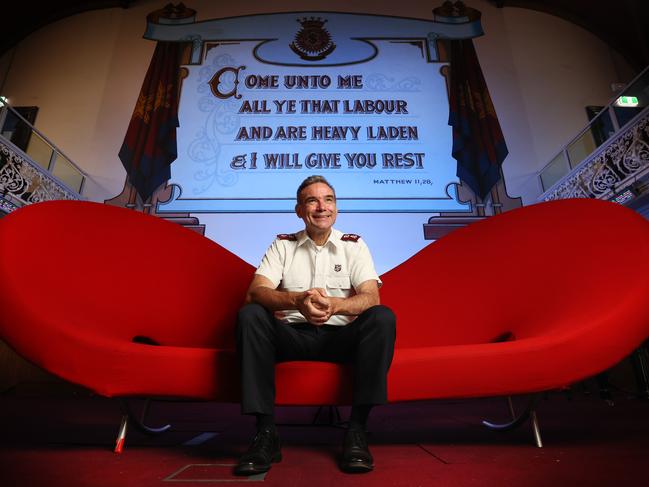
The violence occurred outside a luxury fashion store and had nothing to do with the Salvos, but Nottle spends the next half-hour giving statements to police.
Nottle’s wife and fellow Salvos stalwart, Sandra, waits with a mop and bucket while paramedics stem bleeding from the victim’s arm, 20 metres from where dozens of vulnerable Victorians will soon file into the charity’s “Magpie Nest Café” for a much-needed meal.
Nottle dispatches members of his team to speak to local businesses about the incident.
It is five years since Pellegrini’s owner Sisto Malaspina was stabbed during an act of terror on Bourke St, and that horror still lingers.
The random stabbing was the second time in an hour that Nottle had risen to cries of distress.
Earlier he had offered a friendly ear to a homeless man in socks – this time someone known to the team at the Salvos’ Melbourne Project 614.
“You asked what a day in the life is; well, I guess you’ve seen it,” Nottle said.
“Sorry about that.”
More sirens blare, but this time police cars are leaving the area and Nottle can continue his view of how the cost of living, and a pandemic still resonating, have caused new hardships.
Nottle, who has helped the homeless for more than three decades, said “it’s definitely not business as usual”.
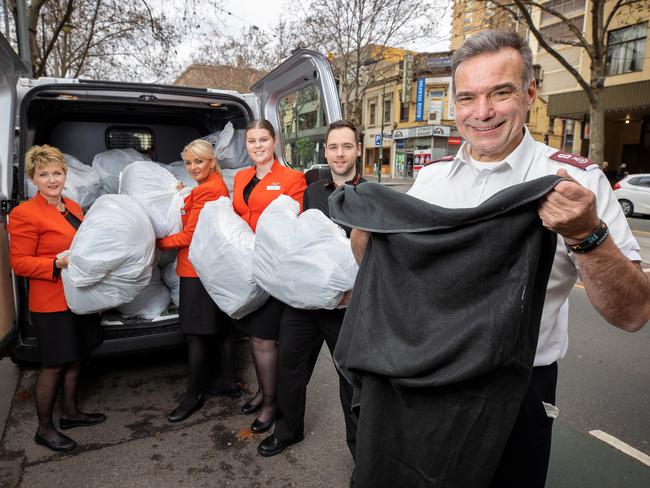
“People seem to be more anxious now, lots more people on edge,” he said.
“And I really worry about that, because I don’t think that behaviour is reflective of who we are as Melburnians.”
THIS IS MELBOURNE
To explain the impact of Covid-19 on Melbourne, Nottle dives back to August, 1835.
“I absolutely believe that Melbourne’s different to other cities because of the values that were embedded in our city at its founding,” he said.
He talks enthusiastically about Henry Reed, a Methodist who helped shape the city we know and who endowed money to create the Salvation Army in London.
“His three core values were ‘no one left behind’, bring the outsider into the centre, and challenge and change structures that produce victims,” he said.
Nottle then explained how John Singleton saw children dying from preventable disease and helped establish the world’s first free medical clinic, before buying a Carlton property for the Salvos to house vulnerable prisoners.
“That’s the stuff that helped shape the city into what we are today, which is a very caring city,” he said.
“So when I saw us coming out of Covid and not behaving in that way, it really concerns me at that deep level, because I think we’re not behaving in the way that we’ve always behaved, which is quietly just looking out for each other, and particularly looking after the outsider and bringing them into the centre and caring for them.”
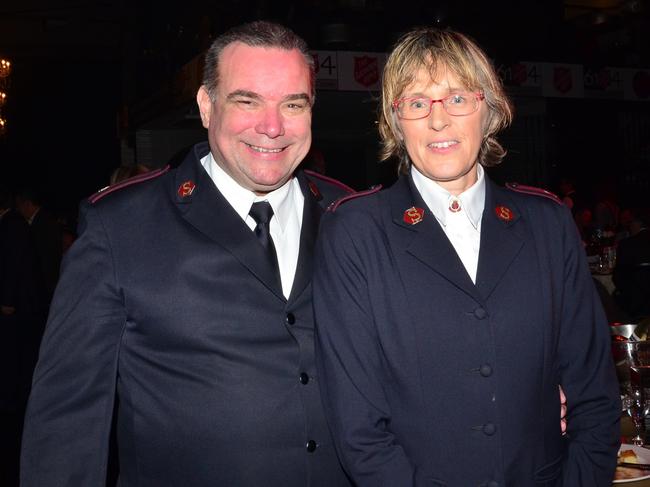
During the pandemic, Nottle praised government support that got rough sleepers into hotels and into support services.
But even then, a group of 30-40 people refused help due to severe mental health problems.
Nottle said this is why he’s been so passionate about a controversial plan for a medically-supervised injecting room in the CBD, which he said would save lives due to wraparound services.
“For me it’s personal, because I know a lot of those people who have died,” he said.
“There was one in particular, who I met behind St Paul’s Cathedral when he was nine, and I got a phone call last year to go to St Vincent’s and I held his hand in ICU – he was brain dead.
“I got a text while I was there to say another guy I had become friends with, he’d overdosed too.”
Brendan and Sandra Nottle have dedicated their lives to helping outsiders in Melbourne.
Nottle described their partnership, which began at a Salvos Christmas party in 1983, as “amazing” and a constant source of support during traumatic events.
“We understand each other’s world,” he said.
Their union almost never happened, however, because the year before they met Nottle had been hellbent on quitting religion.
FINDING GOD AGAIN
On a Friday afternoon in June, 1982, Brendan Nottle was called into the principal’s office at Melbourne High School.
His mum, Lorraine, had died.
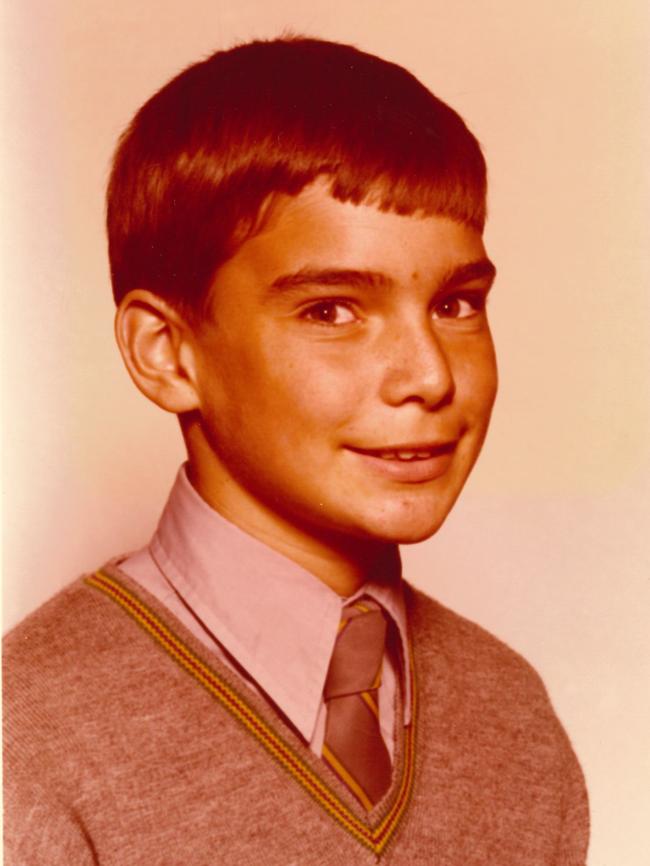
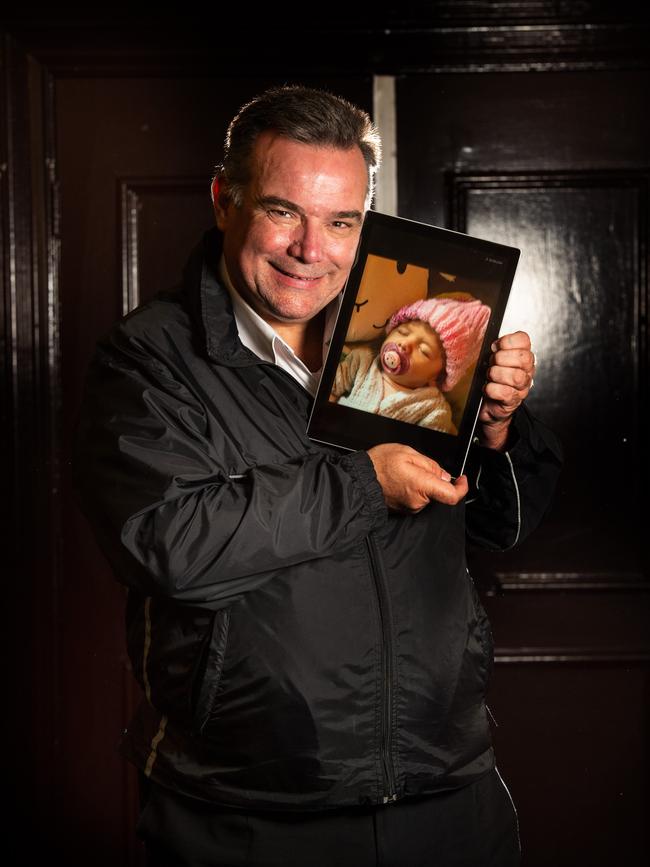
“I still remember it like it was yesterday,” he said.
“I was 17, in Year 12. And I clearly remember saying to him, ‘no, you’ve got the wrong person’, and I actually walked out of his office.”
In typical Nottle fashion he praised the actions of the principal for his care and compassion.
He described his upbringing as “very working class”, with Lorraine Nottle relying on a war widow pension.
“I think she protected me from the challenges of growing up in a family where money was really, really tight,” he said.
His father Rob died when he was four, which meant Lorraine was left to care for four boys on her own.
Like any kid, he got into trouble occasionally and experimented with alcohol and drugs.
The support of the Salvos was always there; a family connection that began in 1928 when Nottle’s grandma was widowed.
A local church Minister was dispatched from his grandma’s doorstep after chiding her for falling behind in giving, while a Salvation Army volunteer arrived with a meal.
Despite that history, when his mum died, Nottle wanted to run away.
“The Salvos have a church focus and so I was really angry with God and saying ‘this is just outrageous that this has happened’,” he said.
He escaped to Adelaide to attend university.
Two days after arriving in the City of Churches he heard music playing from a town hall and wandered in, not knowing it was the Salvos’ state congress.
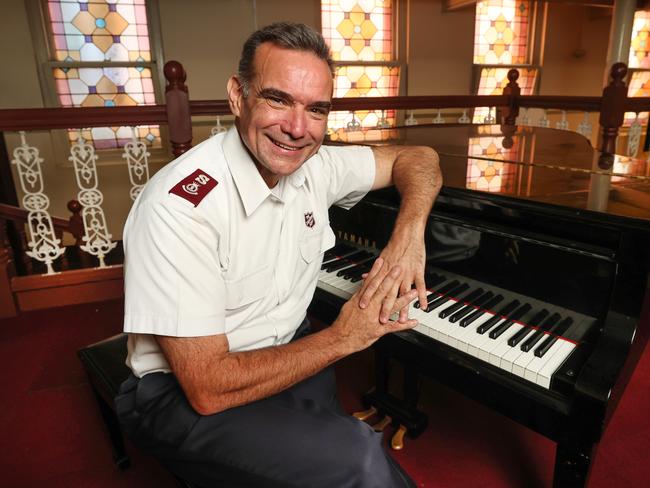
The head of the Salvation Army in Australia at the time, Eva Burrows, was leading a prayer and he stayed until the end of that “out of respect”.
“I just had my head down thinking ‘I just need this to wrap up’, and then I felt a hand on my arm. She (Burrows) had spotted me.”
The following morning he was contacted by the Salvos.
Nottle initially “got reinvolved with the head but not re-engaged with the heart”, but came to appreciate that “every time there was a crisis in my life, the Salvos turned up”.
“Not only did they turn up, but they turned up with great compassion and care.”
Burrows, meanwhile, went on to become the leader of the Salvation Army worldwide, based in London.
After retiring she moved to Melbourne – where she volunteered with Nottle’s team until her death in 2015.
NEW FACES TO FEED
The Salvos’ community cafe at its Bourke St headquarters, where members of Melbourne Project 614 team offer people support, is buzzing.
As the cost of living has surged, up to 500 people a day turn up for a meal.
“We’re seeing new faces coming in,” Nottle said.
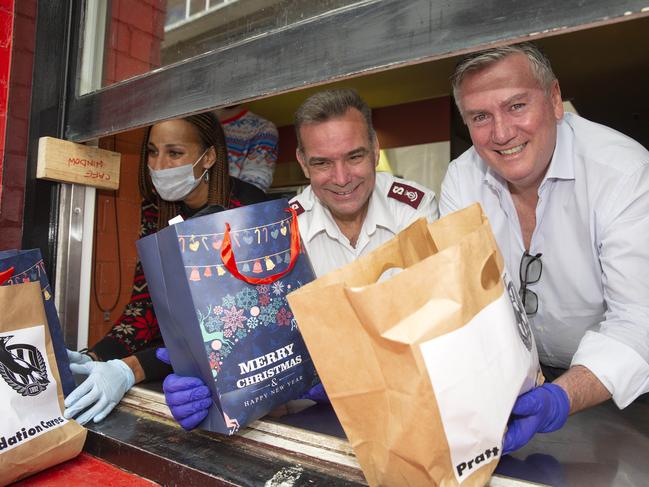
“The thing that shocked me is people coming in who are wearing hi-vis, so they are employed but I call them the working poor. They’re people who are doing absolutely everything they can to make ends meet, but they’re still not making ends meet.”
Demand is set to spike further in the next 18 to 24 months and Nottle said more volunteers and “people willing to contribute” will be required “just to help us get through”.
One major supporter has been the Collingwood Football Club, where Nottle is a chaplain.
About a decade ago, Nottle relayed the story of a young mum and her six year old daughter traumatised by their time at a rooming house, to Magpies president Eddie McGuire.
Two rental properties were sourced to put up vulnerable families, supported by Salvos staff.
There are now 50 houses, rented and furnished by Collingwood Football Club, which have shifted about 130 people from the streets.
“Then they’ve opened up partnerships with Smile Solutions to provide up to $100,000 a year of free dental care for people in the Magpie Nest housing program.”
In recognition of the program, backed strongly by current Pies president Jeff Browne, the Salvos changed the name of their Bourke St cafe a few years ago to the Magpie Nest Cafe.
FIGHTING FIT FOR THE FUTURE
At 8:50pm on a Saturday night in February, 2020, Nottle got a call from one of his team’s workers about a woman showing signs of coronavirus.
Sandra and Brendan drove straight in, fearing what would happen if they had to evacuate the building.
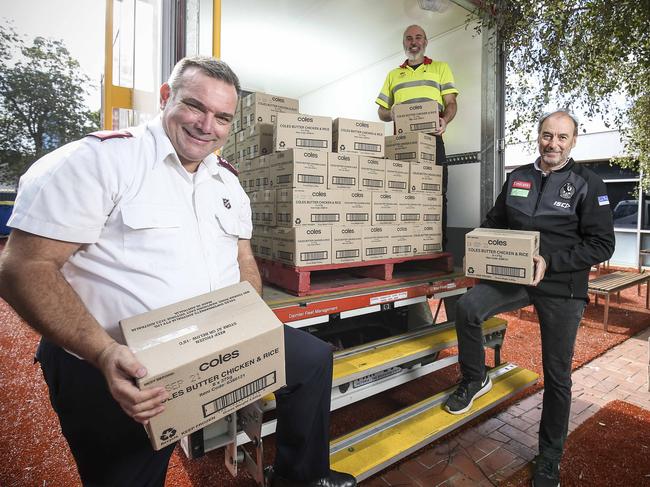
Police and paramedics in hazmat suits arrived, and the woman was hospitalised for weeks – but did not have the virus that was taking hold around the world.
Nottle remembers being concerned about the number of people the Salvos cared for who would be high risk patients, due to excessive weight or underlying health issues.
“I remember Sandra saying, have you looked in the mirror? She was absolutely bang on.”
The larger-than-life Nottle accepted the well-meaning criticism and slashed his food intake, shedding 41kg.
High blood pressure and asthma faded away with his bulky frame.
The change in lifestyle has meant he has been able to engage more with his three grandchildren, who have also altered his perspective.
While he’s not slowing down or getting any more sleep – once a time-pressed Nottle offered a friend a window of opportunity to catch up at either 1am, 3am or 5am – he does appreciate he will one day have to hand the baton to the next generation.
“We are getting older, I’m 59 next month,” he said.
Nottle said it has been a challenge to maintain volunteer numbers in recent years but he’s confident younger people will heed the call to help, as long as the organisation leads by example.
“What we on the frontline need to do is keep doing what we’ve always done, which is care for everyone, and make sure that everyone is welcome.”



